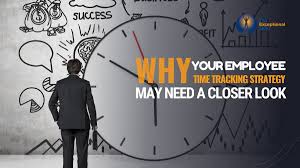A few days back, I came across a really interesting column about time-tracking apps and their increasing popularity in the workplace. It’s pretty cool how they can help businesses revamp their productivity and operations by providing calculated data on resource utilization.
However, the column raised an interesting point about the impact of these apps on workplace culture. Do they really help employees manage their time better, or do they create an environment of excessive monitoring and control? It’s definitely something to consider before deciding whether or not to use them.
After much thought, this comprehensive analysis of the subject matter was developed to better understand the app for time tracking at work and its criticized impact on any organization’s work culture.
So, improved performance or micromanagement?
First thing first, have you ever used a time-tracking app at work? If not, you may have heard well enough about these apps as they are becoming increasingly popular in the modern workplace, and for a good reason. They offer a range of advantages, including better time management, boosted employee performance, and task prioritization. Employees can track their time spent on various tasks and then determine the areas they might be lacking and need improvement. Doing so enables more efficiency and optimizes their workflow accordingly.
Conversely, employers can also use these apps to pinpoint inefficiencies and workflow obstructions. This information can be used to make targeted interventions to improve efficiency and productivity. For instance, if an employee spends too much time on a particular task, their manager can use the data to find the cause of the problem and help the employee find ways to work more at their potential.
But, as with any tool, there are potential risks. One critical disadvantage of these apps is that they can lead to micromanagement if the employer or the manager is unaware of their responsibility. As a result, some employees may feel they are constantly under surveillance and need to justify their time spent on each task. This can lead to heightened stress levels and a pervasive sense of being micromanaged.
Maintaining work-life balance
Apart from improved performance, if there is indeed micromanagement in the workflow, finding the middle ground between work and personal life is a struggle many face. Here, the app for time tracking at work can help revise work hours and boost productivity. However, these apps diminish the fine line between professional and personal life.
As such, employees often need to work extra hours to meet the app’s requirements, leading to exhaustion and decreased well-being. It can also create a hostile work dynamic in which employees feel guilty about taking breaks or engaging in non-work-related activities, adding to their stress levels and affecting their overall work-life balance.
Building trust and autonomy
A peaceful workspace is where employers and employees sustain mutual understanding and respect. However, time-tracking apps can either support or undermine this trust. This is where such time tracker solutions can create a sense of accountability and autonomy when implemented collaboratively and transparently. They allow employees to feel designated and manage their time effectively, knowing their efforts are recognized and valued.
But, if employees see these apps as a way of monitoring them, it can reduce trust and make them resentful. Therefore, organizations should be open about the purpose and usage of these apps to mitigate these concerns and promote transparency and trust.
Impact on employee morale
As mentioned, reduced trust gradually diminishes employee morale and is closely related to productivity and workplace dynamics. Although time-tracking apps can make employees more efficient, using them too long can negatively affect morale. That is, they may feel impaired in their rights and uninterested in their work due to constant monitoring and scrutinization.
Furthermore, if not implemented strategically, the gamification elements of these apps, such as scoreboards and performance metrics, may encourage unhealthy competition and prevent collaboration among teams. For this reason, organizations need to find a balance between accountability and morale to create a supportive and positive work environment.
Addressing privacy concerns
When considering using the app for time tracking at work, it’s important to keep in mind data privacy. In organizations where time trackers are implemented, employees often worry about their personal information, including work habits and productivity details, being collected, stored, and even shared. To prevent this from happening, organizations must implement strong data protection measures and comply with relevant regulations. Transparent communication about data usage and allowing employees to opt in or out can help ease these concerns and build trust and transparency.
The role of leadership
Effective leadership is vital in shaping workplace habits and handling time-tracking issues. That is why it is the responsibility of managers to strategize so that employees feel accountable and also work independently.
Good leadership involves setting clear expectations, supporting open communication, and cultivating trust, respect, and flexibility. By cultivating this culture, leaders can mitigate any potential negative impacts of time-tracking apps on workplace dynamics.
This analysis reaches the estimate where time-tracking apps can be a powerful tool for improving productivity but pose significant challenges to workplace culture. Effective leadership can play a crucial role in cultivating this culture and optimizing the benefits of time-tracking apps. Therefore, it is important to approach these tools strategically and thoughtfully to create a positive and productive work environment for all employees.

